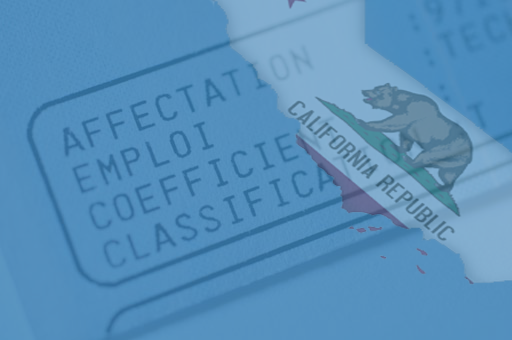California’s New Worker Classification Law for January 2020
Last Updated on November 27, 2019
Do You Know the New Worker Classification Standard in California for Your Staff?
A New Law Becomes Effective Jan. 1, 2020
The California new worker classification law will be effective January 1, 2020.
It is important to know that the new law changes the process for determining whether a worker should be classified as an employee or independent contractor.
Beginning in January, the state standard for employee classification will change, and it expands its scope to include classification related to the state’s labor code, wage orders, unemployment benefits, and workers’ compensation laws.
Some estimate that this change in employer classification standards will impact roughly 10 percent of California’s workforce.
Learning the ABC’s of this New CA Worker Classification Standard
Under the new standard, also known as the ABC test, a worker is an employee if he or she provides labor or services for remuneration.
The new law also shifts responsibility to employers to prove that independent contractors are classified correctly. Under the ABC test, a worker is an employee, unless the employer can prove that the worker:
A: Is free from the control and direction of the employer when performing work, both practically and in the contractual agreement between the parties;
B: Performs work that is outside the usual course of the employer’s business; and
C: Is culturally engaged in an independently established trade, occupation or business of the same nature as the work performed for the employer.
The new law does not dismiss flexibility of part-time or intermittent work schedules, nor the ability to work for multiple employers, but it does prohibit employers from reclassifying individuals who were employees on Jan. 1, 2019 as independent contractors.
What Does this Mean for Me as an Employer?
Whether a worker is covered by a particular law or is entitled to receive a particular benefit often depends on whether he or she is an employee or an independent contractor. If you classify an employee as an independent contractor and you have no reasonable basis for doing so, you may be held liable for employment taxes for that worker. See Internal Revenue Code section 3509 for more information.
As a suggestion, an employer should:
- Review any current independent contractor agreements to determine if they should be reclassified to employees.
- Update hiring procedures and policies to ensure proper classification between independent contractors and employees.
- Train managers, supervisors, HR and other hiring personnel.
- Develop a plan to communicate changes with those that will be reclassed.
Is it Retroactive?
The new law becomes effective on Jan. 1, 2020, but also states that “specified Labor Code provisions of the bill apply retroactively to existing claims and actions to the maximum extent permitted by law while other provisions apply to work performed on or after January 1, 2020.”
The new law does prohibit employers from reclassifying individuals who were employees on January 1, 2019 to independent contractors due to the law’s enactment.
Who is Exempt from the CA Worker Classification Standard?
There are areas that are exempt from the Worker Classification Standard. You can find a complete list in the law. However, some examples of the exempt areas are as follows:
- AAA-affiliated tow truck drivers
- Builders and contractors
- Commercial fishermen (until 2023)
- Direct sales (if compensation is based on actual sales and not wholesale purchases or referrals)
- Doctors, physicians, surgeons, dentists, podiatrists, veterinarians and psychologists
- Financial services (accountants, securities broker-dealers, investment advisors)
- Freelance writers and photographers (if they contribute no more than 35 submissions to an outlet in a year)
- Hair stylists and barbers (if licensed and can set own rates and schedule)
- Insurance brokers
- Licensed estheticians, electrologists
- Licensed manicurists (until 2021)
- Professional services (marketing, human resources administrators, travel agents, graphic designers, grant writers, fine artists)
- Professionals (lawyers, architects, engineers)
- Real estate agents
- Tutors (who teach their own curriculum, and who are not public school tutors)
Classify Your Staff
If you need help understanding California’s worker classification laws, MyHRConcierge is here to help. We stay up to date on the latest state and federal regulations that may cause your human resources policies to become non-compliant.
Contact us today, and we’ll be happy to offer you a free consultation.

